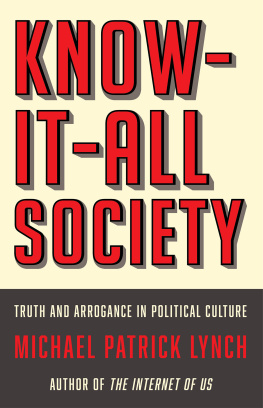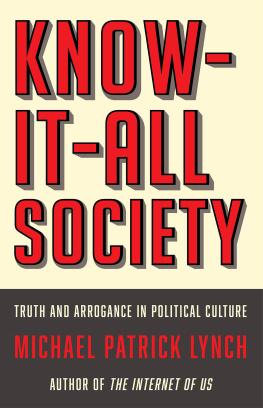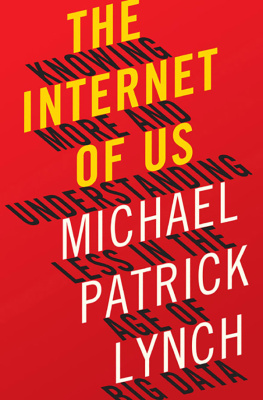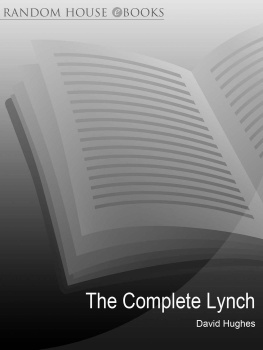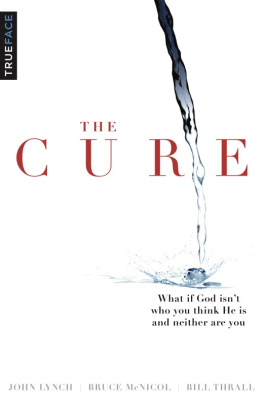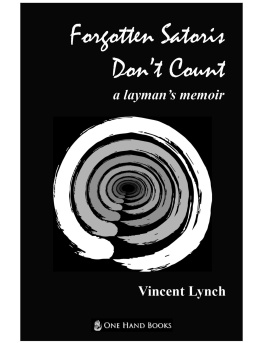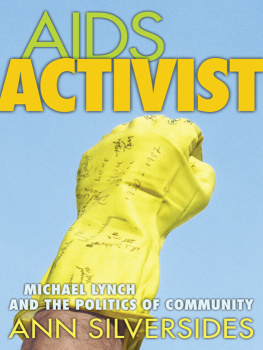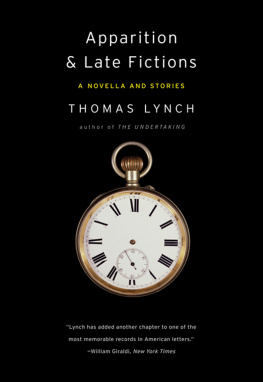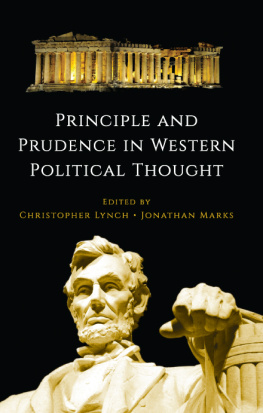Contents

ALSO BY MICHAEL PATRICK LYNCH
The Internet of Us: Knowing More and
Understanding Less in the Age of Big Data
In Praise of Reason: Why Rationality Matters for Democracy
Truth as One and Many
True to Life
The Nature of Truth (editor)
Truth in Context
KNOW-IT-ALL
SOCIETY

Truth and Arrogance in Political Culture
Michael Patrick Lynch

LIVERIGHT PUBLISHING CORPORATION
A DIVISION OF W. W. NORTON & COMPANY
INDEPENDENT PUBLISHERS SINCE 1923
NEW YORK LONDON
Copyright 2019 by Michael Patrick Lynch
All rights reserved
First Edition
For information about permission to reproduce selections from this book,
write to Permissions, Liveright Publishing Corporation, a division of
W. W. Norton & Company, Inc., 500 Fifth Avenue, New York, NY 10110
For information about special discounts for bulk purchases, please contact
W. W. Norton Special Sales at specialsales@wwnorton.com or 800-233-4830
Book design by Daniel Lagin
Production manager: Beth Steidle
Library of Congress Cataloging-in-Publication Data is available
ISBN 978-1-63149-361-4
ISBN 978-1-63149-362-1 (ebk.)
Liveright Publishing Corporation, 500 Fifth Avenue, New York, N.Y. 10110
www.wwnorton.com
W. W. Norton & Company Ltd., 15 Carlisle Street, London W1D 3BS
To Terry, who keeps me humble, or tries to
The concept of truth as something dependent upon facts largely outside human control has been one of the ways in which philosophy hitherto has inculcated the necessary element of humility. When this check upon pride is removed, a further step is taken on the road towards a certain kind of madnessthe intoxication of power which invaded philosophy with Fichte, and to which modern men, whether philosophers or not, are prone. I am persuaded that this intoxication is the greatest danger of our time, and that any philosophy which, however unintentionally, contributes to it is increasing the danger of vast social disaster.
BERTRAND RUSSELL
Who needs Google? My father already knows everything.
INSCRIPTION ON A MUG
Contents

KNOW-IT-ALL SOCIETY

T HE problem of politics is no ordinary question, Socrates says in The Republic; it concerns how we ought to live. This book is about a particular version of the Socratic question: how we ought to believe. Or to put it more precisely, it concerns how we should go about the business of acquiring and maintaining our political convictions.
It is a pressing question. One reason it is pressing is that we are living in a time when not just political norms but the norms of evidence themselves are unsettled. There is increasingly very little common ground between the narratives of the Left and the Right, even the most trivial details of fact are disputed and questioned, and fake news has simply become a label for news that one doesnt like. In such times, the question of how to go about figuring out what to think is very much a living existential question.
Or it should be. But in fact, the unsettledness of our norms The idea that we should listen to their views seems unthinkable. Moreover, we know the other side regards us the same way, and we resent them for it. The Right sees liberals as arrogant know-it-alls, while the Left retorts that this is precisely the description of the person the conservatives elected president of the United States.
But maybe both sides have a point. Maybe all of us, in a certain sense, are know-it-alls, and thats part of the problem.
America, as a culture, has never lacked confidence. We like to think of ourselves as A number one, top of the list, king of the hilland deserving special attention because that is so. And self-esteem, cultural or otherwise, is mainly a very good thing. But if there is a single attitude most closely associated with our national consciousness at this political moment, its not confidence. Its arrogance. In particular, a certain kind of arrogance that now defines our political relationships with each other. Its the arrogance of moral certaintyof thinking your side has it all figured out, that you dont need to improve because you are just so great already. It is arrogance about what we believe or think we knowintellectual arrogance.
Several factors are conspiring to encourage the spread of this attitude. The most obvious is our politics. In the United States, in particular, we are becoming numb not only to outrageous falsehoods, but to the bizarre self-assurance with which they are pronounced. We were told crowds were bigger than they were, that the sun shone when it didnt, that Trump won in a landslideand that was just in the first few days after his election. Since then, our political discourse has become even more polluted with arrogant indifference to truth. Most of us have probably felt at some point or other that it cant get worseand then it does.
All this highlights another reason our Socratic question is pressing. It is pressing because how we go about believing has a direct effect on what we believe. If we approach the question of whether to believe that climate change is real, or that vaccines cause autism, with our minds already made up, we will get an answer that reflects ourselves more than the truth. But more than that, if we become convinced that those who answer differently are also approaching the question with minds made up, we may begin to feel that the whole enterprise is bankrupt. We may begin to listen to those who tell us that everyone is entitled to their alternative facts, that all news is fake news and social media simply weaponized information. We may begin to think, with Camus, that dialogue and personal relations have been replaced by propaganda or polemic. In other words, the dogmatic arrogance we see in our political discourse may be due to our belief in our tribes infallibility, or it may be due to the fact that weve simply punted on truth and embraced power as the measure of our success.
It is tempting to think that these problems can be handled with technical, policy-driven solutions: reimagining our digital platforms, or passing new legislation, or teaching people more facts about civics. And without a doubt, those things are terribly important. But at the end of the day, dealing with our attitudes toward truth and conviction wont be solved just by teaching people more facts when we dont agree on what counts as a fact. The problem of how to deal with the spread of dogmatism and the politics of arrogance is not a technical problem; it is a human problem. If we want to solve it, we have to change how and what we value; we must change our attitudes.
An attitude is an explicit or implicit mental evaluation that we make of the world around us; it is a frame of mind, a kind of positive or negative mental orientation. Attitudes have been much discussed in social psychology for over a century, and in philosophy long before that; the seventeenth- and eighteenth-century Scottish philosopher David Hume might have called them sentiments. And scientists since Freud have warned us that the mental attitudes driving us are often ones we would consciously disavow and be embarrassed to find ourselves holding. Our attitudes matter for how we relate to the world, to one another, and to ourselves.

